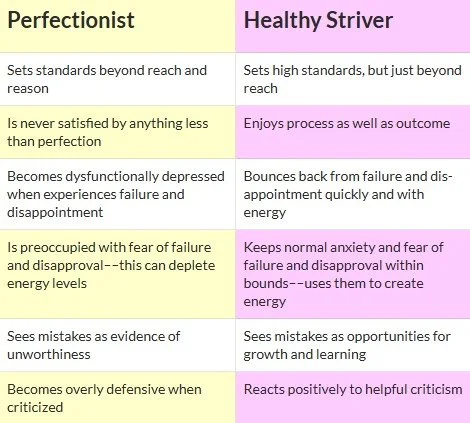Are you a perfectionist?
Do you feel the need to be in control? Do people tell you that you are stubborn and inflexible? Do you have a hard time delegating to others? Do you enjoy making lists, schedules and plans? Do you like to be productive and hate to waste your time? Do you pay attention to details and get nervous when things are chaotic? Do you set strict standards and sometimes find yourself not being able to complete your tasks due to fear of failure?
If you answered “yes” to most of the above questions, you might be a perfectionist.
What is perfectionism? According to Wikipedia, the free Encyclopedia,”Perfectionism, in psychology, is a belief that perfection can and should be attained. In its pathological form, perfectionism is a belief that work or output that is anything less than perfect is unacceptable.”
The most pathological form of perfectionism is Obsessive-Compulsive Personality Disorder (OCPD) which is diagnosed when most of the following criteria are met:
-preoccupation with details, rules, lists, order, organization, and schedules
-being very rigid and inflexible in beliefs
-showing perfectionism that interferes with completing a task
-excessive focus on being productive with time
-being very conscientious
-having inflexible morality, ethics, or values
-hoarding items that may no longer have value
-a reluctance to trust a work assignment or task to someone else for fear that one’s standards will not be met.
Now, would you like to know if your perfectionism is healthy or pathological?
The University of Texas has published an article which makes a distinction between pathological perfectionists and healthy strivers. Which one are you?
If you find yourself relating more to the Perfectionist column, have in mind that psychotherapy (especially Cognitive-Behavioral Therapy) has proven to be helpful in successfully treating this condition.

